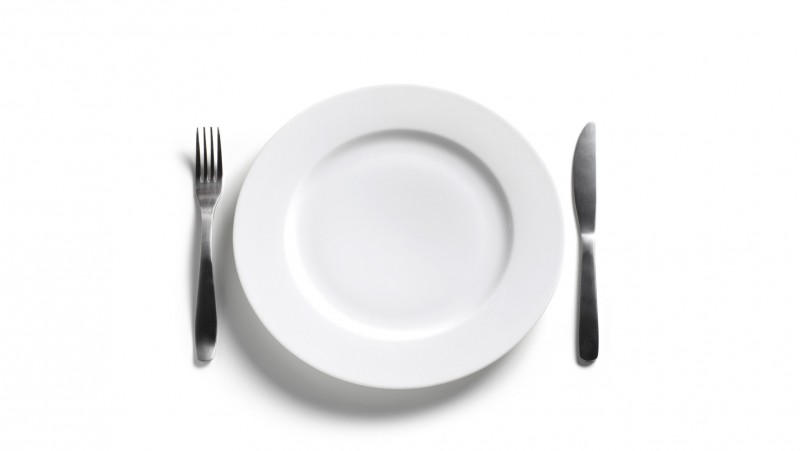Fasting has been around in many different cultures for centuries. Fasting is a form of clearing out your system. If you’ve ever fasted, I am sure you realize that it is an emotional and physical challenge; yet it is a challenge worth persevering through.
In fact, Dr. Brian Clements, of the Hippocrates Health Institute, is a big advocate of fasting and feels that fasting one day per week can extend your life. The premise is that harmful toxins are stored in your fat, and when you go without food for an extended period of time, your body uses fat as an energy source. When the fat breaks down, toxins are released. Some other benefits of fasting include giving your digestive system a much needed rest, allowing your body to detox and cleanse, promoting mental clarity, increasing energy levels, clearing up your skin, helping with weight loss, improving your immune system, and increasing white blood cell count.
Juicing
Juice fasts became very popular among celebrities a few years ago, and this encouraged many others to climb onto the bandwagon. So many people are now into juice fasting. This is fantastic because fasting is so incredibly healthy. Denise Mari, founder of Organic Avenue in New York, was one of the first instigators of the mainstream market juice craze. She worked together with her partner Doug Evans, to build a hugely successful company, which delivers organic juices right to you, and that’s your food intake for the day. This service is now available in many large cities across North America, through a large variety of companies.
Types of Fasting
- Long term fasting: abstinence from food or calorie intake for a period over seventy-two hours.
- Short term fasting: abstinence from food or calorie intake for a period of seventy-two hours or less.
- Intermittent fasting: occasionally taking a break from eating.
- Intermittent feeding: taking the occasional break from fasting to eat during a predetermined window.
Fasting is so beneficial that numerous diet plans have been developed around the concept. Here are some of the most popular:
The Fast Diet
The Fast Diet: The Secret of Intermittent Fasting by Dr. Michael Mosley is very popular in Britain. It encourages intermittent fasting. You eat the way you normally do for five days and fast for two days, consuming about 600 calories for men and 500 for women on the fasting days. Although you might experience some hunger pangs, Dr. Mosley says these pangs eventually pass, and you’ll find that fasting actually sharpens your mental capacity and your senses. You might think two days of fasting could lead to overeating on the no fasting days, yet this was not Dr. Mosley’s experience. Neither did he experience muscle loss. He found the first few fasts the most difficult, yet over time, the diet became easier. After two months, he lost about twenty pounds and says his overall health greatly improved.
Dr. Mosley feels that fasting can lead to weight loss and long term health and wellbeing benefits, including a reduced risk of heart disease, cancer, and diabetes. It gives your pancreas a rest, which boosts the effectiveness of the insulin it produces in response to elevated blood glucose. Increased insulin sensitivity will reduce your risk of obesity, diabetes, heart disease, and cognitive decline. The diet also resulted in an overall enhancement of mood and sense of wellbeing, perhaps as a consequence of the brain producing increased levels of neurotropic factor. This diet approach forces you to think about what you eat and when you eat. There is no daily calorie control or deprivation regime like most diet plans. You won’t starve on any given day, and you will still enjoy the foods you love most of the time. Once you lose the weight, sticking to the basic program keeps your weight off because it’s not really a diet. It’s a sustainable strategy for a long, healthy life.
Alternate Day Fasting
A slightly different approach to fasting is Alternate-Day Fasting (ADF), popularized by Dr. James Johnson. Having struggled with weight issues throughout much of his adult life and witnessing his patients’ weight loss challenges, he came up with the Johnson UpDayDownDay Diet, which he describes in his book The Alternate-Day Diet. On this diet, you fast every second day. On fasting days, men are limited to 600 calories and women to 500 calories. These calories must be consumed in one meal, normally lunch.
Intermittent Fasting (IF)
One widely accepted approach to intermittent fasting is going without food for a 12-18 hour stretch. This can be as simple as skipping breakfast. It’s been drilled into our heads forever that we should never miss breakfast; however, this is not necessarily the case.
Brad Pilon, author of Eat Stop Eat, has a master’s degree in human biology and nutritional science and is considered a guru of intermittent fasting. His extensive research indicated that one of the keys to longevity is to skip eating. In his book, he recommends two twenty-four-hour fasts a week. “Fat loss starts happening at about 12 to 13 hours and plateaus around 18 hours,” he says. What works for a lot of people is to have an early dinner, no bedtime snack, skip breakfast and enjoy a late lunch. This is a relatively easy way to accomplish an effective fast because you are sleeping through a large portion of it. If you can’t handle doing this twice a week, you’ll still obtain benefits by doing it once per week or even once a month! Human growth hormone goes up, insulin level goes down, cortisol level is stabilized, adrenals become healthy, metabolism is increased, hormones that burn body fat are boosted, and you lose body fat, hunger cravings subside, triglyceride levels drop, and the body adjusts from burning carbohydrates to burning fats.
Extended Fasting
Gabriel Cousens is a holistic physician, homeopath, psychiatrist, family therapist, Ayurvedic practitioner, Chinese herbalist, spiritual master, and founder of Tree of Life Center US. He fasts 2-4 times per year for 7-10 days at a time. Cousens believes that:
“Fasting is perhaps the simplest and most remarkable self-healing approach related to our food intake for re-balancing and clearing the body and mind and elevating the spirit. I call it the elixir of fasting. It is one of the greatest health benefits.”
If you decide to do a long-term fast, you want to avoid muscle loss, which can happen if you don’t know what you’re doing. First and foremost, it is dependent on the kind of fast you are doing: a water fast, a total fast, or a juice fast. How much fat you have stored in your body and whether you exercise are also factors. Your body has three sources of energy: carbohydrates, which is the preferred fuel for quick energy; fat, which is its next source of energy; and protein. However, the body’s utilization of the three sources of energy is not always in this order. If you exercise during a long-term fast, this can cause muscle loss if you are not properly nurturing your body. Your body’s metabolism will shift to a fat-burning mode called ketosis as a result of fasting or depriving your body of carbohydrates. Both the Atkins and the Paleo diets focus on protein for fuel rather than carbohydrates, which helps your body burn fat for fuel and you don’t feel that hungry. They also maintain muscle mass. The body can convert some of the protein you eat into glucose; however, the body is not able to convert fat into glucose. The key component to this kind of diet is to have the correct amount of carbohydrates and protein. You have to know what you are doing because this is based on a very specific formula.
As a general rule intermittent fasting is best for physical health, and long-term fasts are best for emotional, psychological, and spiritual health.
Is Fasting for You?
It may be difficult to believe so many benefits could result from simple fasting, however, the advantages have been extensively researched. Through experimentation, you will find the right approach for you.
For more on Alternate Day Fasting, Extended Fasting, Intermittent Fasting, and Fasting While Exercising, pick up your copy of the Recipes for Life Boxed Set.
Access your complementary FASTING recipe here.
Health Coach Rita Thomas and Chef Erin Holm hope to inspire families, friends and communities to live happier, healthier and more delicious lives.


